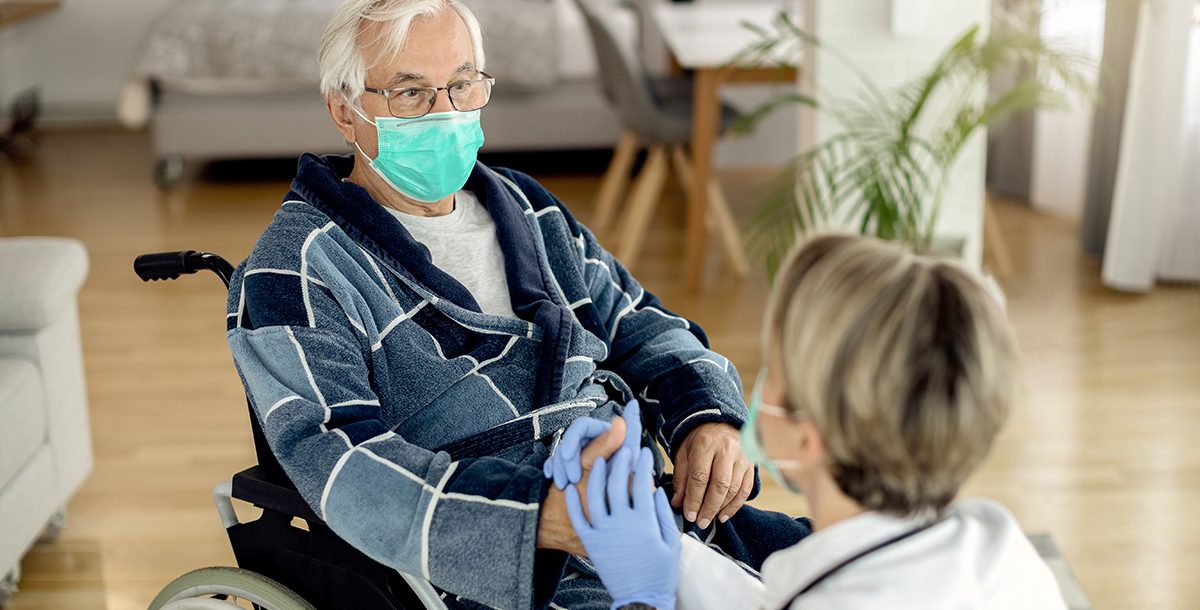A stroke is often a major health event. In fact, life may never be the same for an individual after they have had a stroke.
While life obviously changes for the stroke survivor, it also changes for loved ones. Being a stroke caregiver is not easy. Priorities change, needs are bigger and constant vigilance is needed to ensure you don’t miss symptoms that could be important.
Therefore, it is important for stroke caregivers to remember to take care of themselves too.
Caring for a stroke survivor
Every stroke survivor is unique with specific health issues. A medical care team works closely with a stroke survivor to determine long-term prognosis and daily care needs.
Some of this care may include:
- Assistance with toileting
- Communication
- Daily care, such as bathing and dressing
- Help with eating
Right after discharge from the hospital, a caregiver will have to work hard to stabilize the stroke survivor in a new routine. It’s common for stroke survivors to have to be hospitalized again about 30 days after discharge. Avoiding this situation is important for long-term recovery.
Long-term impacts of a stroke
The long-term impacts of a stroke may be mild or significant. Stroke survivors may experience some or all of these issues:
- Muscle spasms, joint rigidity and joint pain
- Numbness that interferes with the sense of touch, preventing the sensation of hot and cold
- Spatial disconnect that causes clumsiness
- Verbal and written communication problems
- Weakness on one side of the body that interferes with movement
Personality changes in stroke survivors can be surprising to caregivers. Anger, anxiety and depression are common, and many survivors take their anger out on their caregivers.
If you’re not expecting this, the negative emotions can feel personal and hard to handle. Try to remember that emotional outbursts aren’t personal. The stroke survivor likely feels profound grief after the stroke.
Caregiver stress and burnout
The demands of caring for a stroke survivor are exhausting. Not only do caregivers have to provide daily personal care, but they also have to watch for signs of new health issues.
The stroke survivor’s needs are often around the clock, and it’s easy to get overwhelmed. Caregiver burnout happens when the caregiver reaches a point of being emotionally, mentally and physically exhausted. If this happens, both the caregiver and the stroke survivor are at risk.
Signs of burnout include:
- Avoiding leisure activities and trouble relaxing
- Difficulty concentrating
- Fatigue
- Feelings of hopelessness
- Feelings of resentment
- Irritability, anxiety and depression
- Neglecting responsibilities
- New health problems
- Trouble sleeping
- Turning to alcohol or food for comfort
What do caregivers need most?
Feelings of powerlessness are a huge reason that caregivers get stressed and eventually burn out. Being thrust into the role of caregiver without warning is overwhelming, and it’s common to feel trapped and hopeless when looking into the future.
In spite of these feelings, it’s important for caregivers to know that they aren’t powerless. Even if a life situation isn’t ideal, you can still approach it with hope and positivity. Try to focus on acceptance of the situation, while still looking for ways to take care of yourself.
- Carve out time to spend doing things you like such as spending time with friends and family and pursuing hobbies.
- Embrace your decision to be a caregiver by focusing on the positive reasons you made this choice.
- Expend energy on things you can change.
- Join a support group of other caregivers.
- Schedule respite care to give yourself a break.
Learn about the stroke care services we offer at Mercy Health.






